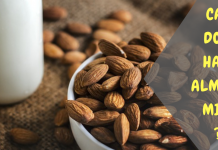Welcoming a new puppy into your home is an exciting and joyous occasion, filled with playful antics and tender moments. As a caring pet parent, one of your top priorities is ensuring your furry friend grows up strong and healthy. A crucial aspect of your puppy’s development is the health of their bones and joints, which lay the foundation for a lifetime of energetic adventures and boundless joy. In this guide, we’ll explore practical and nurturing strategies to support your puppy’s skeletal health, from proper nutrition and exercise to preventative care. By understanding and addressing their unique needs, you can help your puppy thrive, ensuring they leap into adulthood with strength and vitality. Let’s embark on this journey together, fostering a happy and healthy future for your beloved companion.
Choosing the Right Nutrition for Strong Bones
Ensuring your puppy receives the right nutrition is vital for their growth and development, particularly for their bones and joints. Calcium and phosphorus are essential minerals that should be included in your puppy’s diet to support bone strength and density. A balanced ratio of these minerals helps in forming strong bones and preventing skeletal issues as they grow. Look for puppy food that includes these nutrients in appropriate amounts to support their developmental needs.
- Protein-Rich Diet: Proteins are the building blocks of your puppy’s body. Choose foods with high-quality protein sources like chicken, beef, or fish to support muscle and bone development.
- Omega-3 Fatty Acids: These are known for their anti-inflammatory properties, which can help maintain healthy joints. Foods enriched with fish oil or flaxseed are excellent choices.
- Vitamins and Minerals: Ensure that the diet includes a variety of vitamins such as Vitamin D and minerals like magnesium, which aid in calcium absorption and bone health.
Regularly consult with your veterinarian to tailor your puppy’s diet to their specific needs, ensuring they grow into strong and healthy adults.
Creating a Safe and Stimulating Exercise Routine
When designing an exercise routine for your puppy, it’s crucial to balance activity with safety to support their developing bones and joints. Puppies have different exercise needs than adult dogs, as their bones are still growing and more susceptible to injury. Here are some tips to create a safe and stimulating exercise plan for your furry friend:
- Short, Frequent Sessions: Instead of long, exhausting playtimes, opt for short and frequent sessions. Puppies tire easily and need plenty of rest to support their growth.
- Choose Soft Surfaces: Playing on grass or carpeted areas can reduce the impact on your puppy’s joints compared to harder surfaces like concrete.
- Encourage Natural Movement: Engage your puppy in activities that mimic their natural behaviors, such as chasing a ball or exploring new areas, to promote healthy joint development.
- Watch for Signs of Fatigue: Be attentive to signs of tiredness, such as slowing down or lying down during play, and give them a break when needed.
Incorporating these elements into your puppy’s routine can ensure they stay active and healthy, fostering strong bones and joints as they grow. Remember, each puppy is unique, so adjust the routine to fit their individual needs and energy levels.

Recognizing Early Signs of Joint Issues and How to Address Them
As a loving pet parent, it’s crucial to be vigilant about your puppy’s bone and joint health. Observing subtle changes in your furry friend’s behavior can be the first step in identifying potential joint issues. Look out for signs such as:
- Limping or favoring one leg over the others
- Reluctance to climb stairs or jump
- Noticeable stiffness, especially after resting
- Decreased activity levels or playfulness
Addressing these early signs can make a significant difference in your puppy’s overall well-being. Ensure they have a balanced diet rich in calcium and phosphorus, essential for bone growth. Regular exercise, tailored to your puppy’s breed and age, can strengthen muscles around the joints, providing better support. Consulting with your vet for appropriate joint supplements and maintaining a healthy weight are also vital strategies to prevent undue stress on developing joints.
















